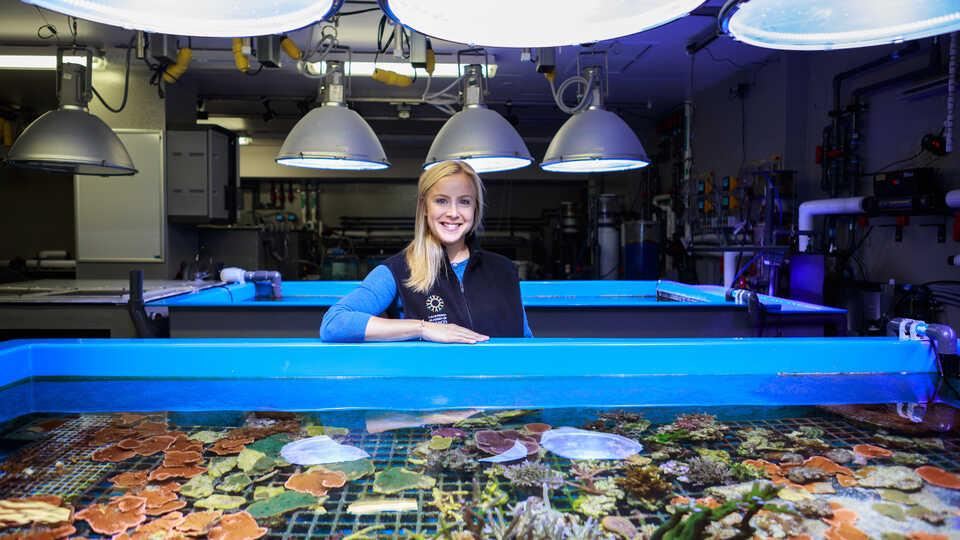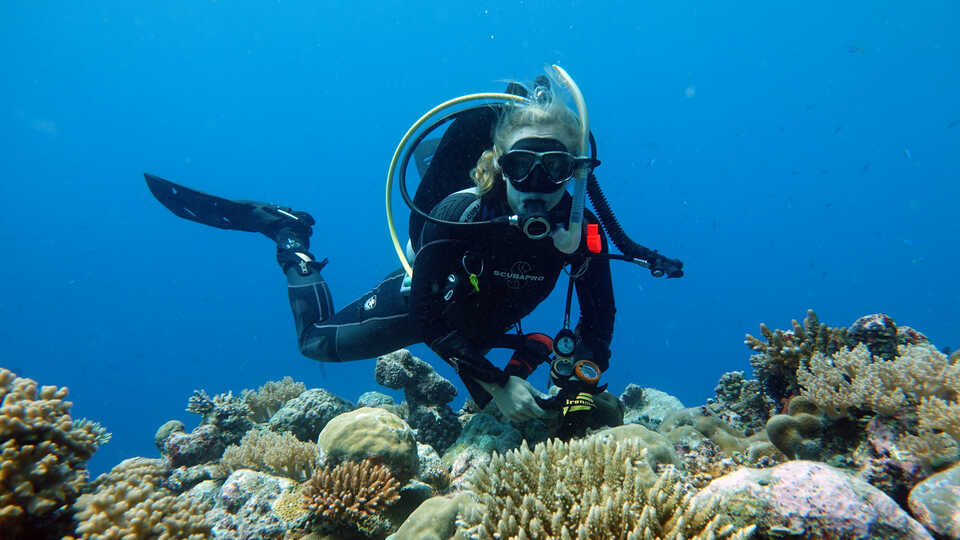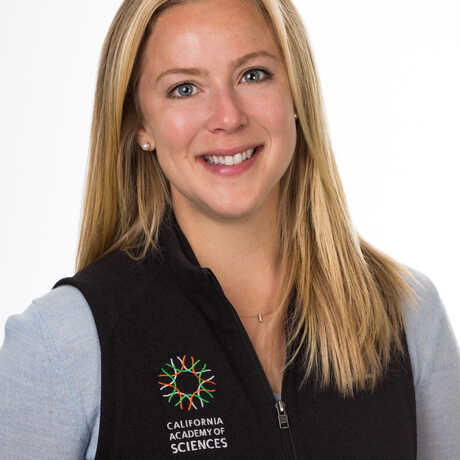An estimated 50% of the world's coral reefs have been lost over the last several decades and we’re projected to lose more than 90% by 2050—a statistic we hope to change through solution-focused scientific work.
For the last 15 years, I have been studying the impacts of ocean acidification on coral reefs. My research works across scales (from single-cell interactions to reef-scale processes) and disciplines (biology, ecology, biogeochemistry) to foster a systems-level understanding of how coral reef ecosystems will fare in today's rapidly changing world.
My lab’s primary research focus is on the impacts of excess carbon dioxide on coral biology, ranging from effects on coral reproduction to whole-of-reef scale calcification and metabolic functioning, and addresses the many insults that reefs are currently facing. We are particularly interested in how changing global conditions will influence coral reproduction, and what this might mean for the next generation of corals.
At the Academy, our coral science is pioneering a solutions-focused research program that tries to understand the most critical barriers to successful reproduction and potential solutions. It is my hope that understanding how to maximize recruitment in the face of environmental stressors will help us leverage restoration efforts to enhance reef resilience. We work across academic, government, and non-profit sectors to feed this new coral science directly into relevant sectors.


